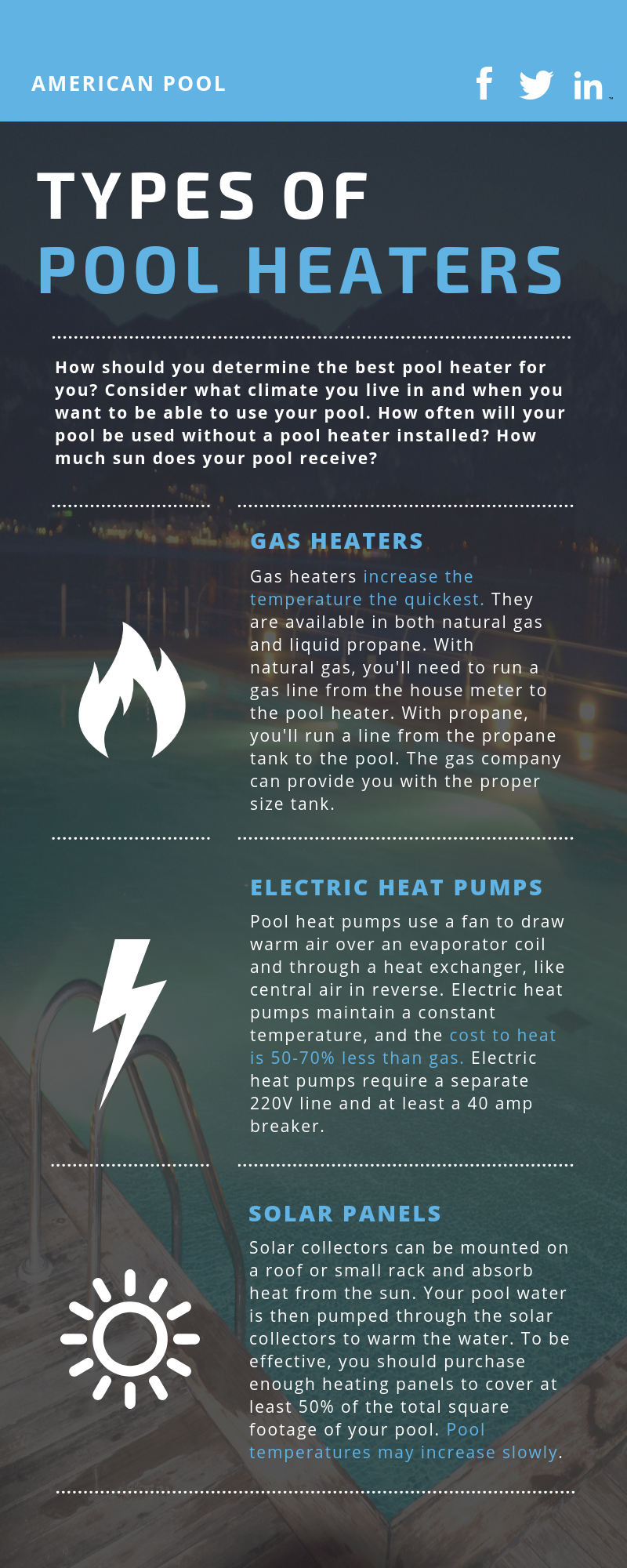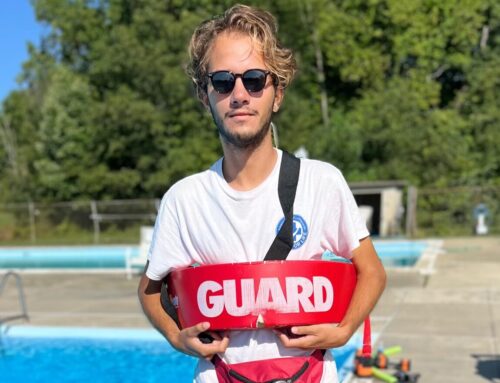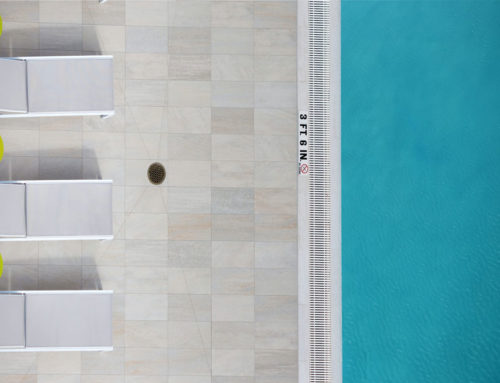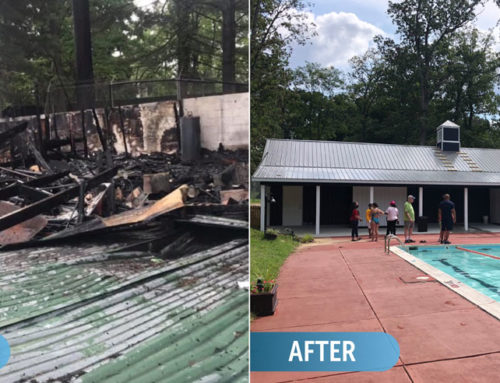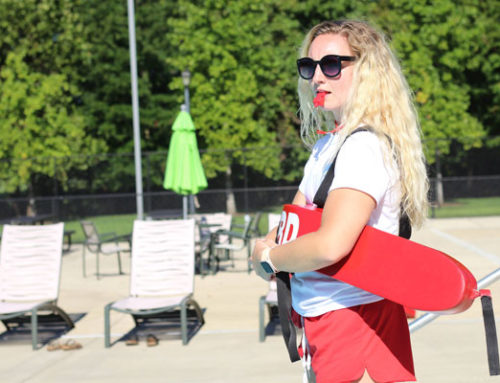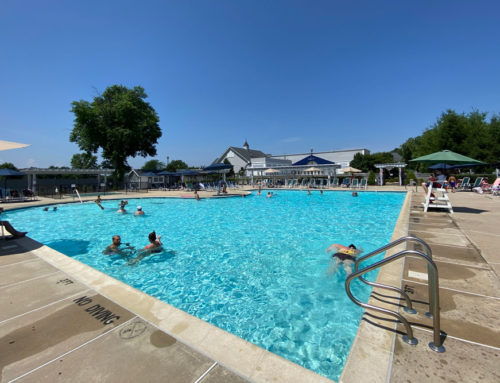Winter is on its way and if you live in a colder climate you’re probably wishing summer sun and lazy days poolside could make a comeback! A pool heater can extend your pool season by adding a month of swim time to the beginning and end of the season. Warmer pool water can also ensure the pool will be used more often. We all know someone who won’t go near colder water!
Types of Pool Heaters
Which Pool Heater is Best?
Gas Heater Advantages/Disadvantages
The best heater for you is a function of your goals and what utilities are available. All pool heaters can increase your pool temperature by 10 degrees or more, but if you’re looking for a temperature increase of 30-40 degrees a gas heater is your likely choice. Gas heaters heat on demand providing the most rapid temperature gains. They are excellent for vacation properties or other locations where the pool will be used intermittently. However, running a gas line can be expensive. Propane service is an option, where running a gas line is cost prohibitive, but a tank will be needed on site and needs to be accessible for fuel delivery. When cared for properly gas heaters can last 7-12 years.
Electric Heat Pump Advantages/Disadvantages
Heat pumps are a more cost-efficient option, around the cost of running a 100-watt bulb, or $1-2 per day. The heat pump is likely more expensive than a gas appliance up front, but depending on the cost of running a gas line this could be the most cost-effective option. You’ll need to be sure you have enough power going to your pool’s electrical sub panel, or you may have to invest in an electrician to run a new line from your home. It’s important to keep in mind that heat pumps take longer to heat the water than gas and that they lose their efficiency when the air temperatures fall below 50 degrees Fahrenheit. On the flip side, heat pumps can cool the water in the middle of the summer if your pool gets too warm!
Solar Panel Advantages/Disadvantages
Solar collectors require 6-8 hours of sunlight daily, typically a southern exposure. The temperature will increase slowly and the outside air will also affect the temperature. Solar collectors are typically installed on the roof of a home or building and require a booster pump to move the water to a higher elevation. Of course, this more passive type of heating system works best in warmer climates. When it’s colder outside your pool water will not get much warmer than the ambient air outside. Solar heat can be a very cost-effective option, you’re getting free heat from the sun, and the panels can last for 10-15 years.
American Pool can help you decide which type of heating system is best for your pool and location. If your interested in a pool heater for your residential or commercial property click the button below and fill out the form. One of our knowledgeable pool service and repair staff will contact you soon!
[ap_button type=”secondary” url=”/?p=6047″ text=”Request Service”]

